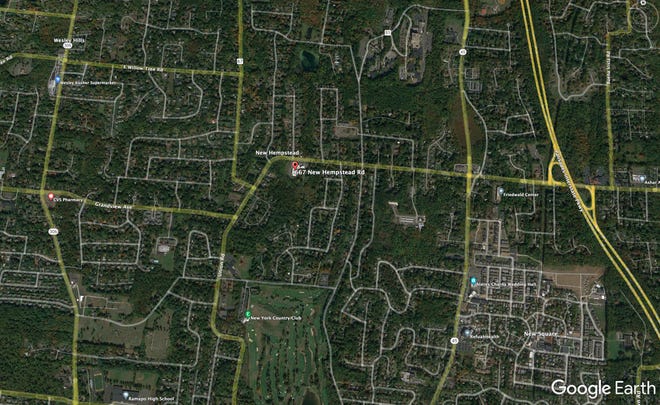Foil: Your right to Know.

“Fairview Oval homeowners have asked a state judge to block a Ramapo land sale designed to bring a park to the village and extra land for development at a private school.
The legal action filed in New York State Supreme Court argues Ramapo sold municipally-owned parkland to New Hempstead without state Legislature approval. Parkland cannot be arbitrarily sold for development without the legislation declaring the land is no longer parkland.
The wooded 22 acres surround the Fairview Oval development of single-family houses. Ramapo acquired the property as part of the town approval of the development off New Hempstead Road in 1972.
Land deal: Ramapo land sale could mean park, village hall for New Hempstead, yeshiva expansion
Zoning challenged in court: New Hempstead updated zoning challenged; see what lawsuit claims
The Ramapo Town Board declared the property surplus in April and approved selling the land to New Hempstead for $1.35 million. The town approved the price even though the land had been appraised at $3.4 million five years ago.
As part of the deal, New Hempstead would separately sell more than five acres for $1.2 million to the Yeshiva of Greater Monsey at nearby 667 New Hempstead Road. As part of the sale, the yeshiva has agreed in principle to finance access to New Hempstead Road from the park and improve the curve near the intersection with Pennington Way, officials said.
The yeshiva’s president, developer Joseph Kazamovsky, plans to develop hundreds of homes on the 130-acre former Minisceongo Golf Club property in Ramapo and the 34-acre former Matterhorn Nursery property in New Hempstead. Under Ramapo’s updated zoning for the area, developers must seek town board approval to build on property topping 20 acres before going before town land-use boards.
As for Fairview Oval, three residents − Stanley Iskowitz, Susan Iskowitz and Zvi Raskin − want to block the sale and maintain the property as wooded open space. Their Article 78 was developed by activist Deborah Munitz and attorney Bruce Levine.
The legal action asks a judge:
- to annul the Town Board declaring the land surplus on the grounds of being arbitrary and capricious and lacking state approval to sell parkland;
- to annul the approval for failure to meet the requirements of the state Environmental Quality Review Act to identify and study any impacts on the environment and neighborhood.
Levine, a former county legislator representing Ramapo, said Monday they are concerned about clear-cutting the trees and the impact on the water system. He also has been involved in blocking a 477-home development at Patrick Farm with Munitz, a member of the ROSA grassroots environmental organization.
The plan “smacks of a predesigned deal pushed through by a developer without any concern for history, the land, or the local residents,” Levine said. “I do hope that wiser heads will prevail both in court and among the leaders of New Hempstead.”
Munitz said during an April public hearing town officials added the resolution to declare the land surplus at the last minute and didn’t give residents time to study the issue and the town to follow its own rules on selling taxpayer-owned property.
“For this reason, this land cannot be willy-nilly considered surplus land and sold off,” she said. “If the land were to be surpluses it would need to be sold in a way that guaranteed the best return to the taxpayers of Ramapo and there would need to be a process for that as well.”
Read the complete Journal News coverage here.





